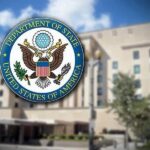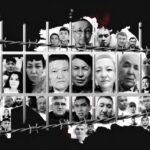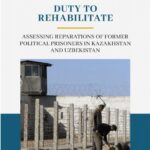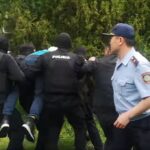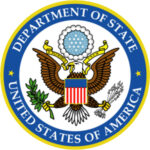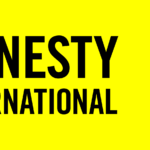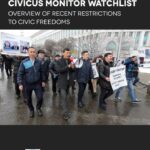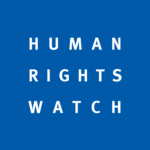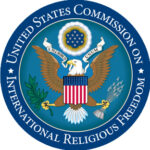The absence of information following several violent clashes on 16 December between police and demonstrators in Zhanaozen exemplifies Kazakhstan’s lack of progress in protecting and promoting the right to freedom of expression. ARTICLE 19 outlines the necessary reforms that the Kazakh government must make to demonstrate its genuine commitment to democracy and uphold the rights to freedom of expression and information.
Twenty years ago, when Kazakhstan declared its independence, it enshrined human rights in its constitution, specifically under Article 1, recognising “a human, his life, rights and freedoms as supreme values of the state.” The collapse of the Soviet Union provided a chance to start afresh as an independent democratic state, but with the collapse arose the challenges related to the ability to overcome totalitarian traditions. Kazakhstan joined several international intergovernmental organisations, including the United Nations (UN) and the Organisation for Security and Cooperation in Europe (OSCE), and ratified human rights treaties and committed itself to those organisations’ principles which oblige it, inter alia, to ensure the observance of the right to freedom of expression as part of the International Covenant for Civil and Political Rights. This includes the freedom to seek, receive and impart information and ideas of any sort, regardless of their frontiers.
In 2010, Kazakhstan was elected as the chair of the OSCE and it recently applied for membership of the UN Human Rights Council. However, for the last 20 years, Kazakhstan has made little progress in putting concrete and primary measures in place for necessary reforms to ensure the protection and promotion of freedom of expression in practice. The commitments Kazakhstan promised to fulfil before its OSCE Chairmanship remain unfulfilled.[1] To date, not one existing media outlet can be considered to be independent or free. Intimidation and censorship, including self-censorship, remain a big threat as journalists continue to be attacked and face criminal and civil lawsuits for criticising the Kazakh authorities.
Contrary to recommendations made in the Human Rights National Action Plan in the Sphere of Human Rights for 2009 -2011, no further steps have been undertaken by the Kazakh parliament to implement a consolidated program that provides for concrete steps to improve the legislation, regulating the activities of the mass media in Kazakhstan, and to set a statute of limitations on lawsuits protecting honour and dignity. This lack of progress is visible in the reaction of the authorities to the violent clashes in Zhanaozen, western Kazakhstan, on 16 December, the 20th anniversary of Kazakhstan’s independence from the Soviet Union and 25th anniversary of the Zheltoksan uprising, a protest which ended in the shooting of hundreds of civilians. Violent clashes between police and protesters on 16 December, following an oil workers’ strike in Zhanaozen, which started seven months ago, resulted in the death of at least 14 people. For three days following the beginning of the clashes, journalists were not allowed to enter the town, phone lines were cut off and internet websites were blocked. On 17 December President Nazarbayev signed an order establishing a state of emergency in the town, which among other constraints, imposed restrictions on physical access to and from Zhanaozen, the use of certain radio and television equipment, as well as on making audio-visual recordings, and included a prohibition on any public gatherings. Three Russian journalists were detained for several hours without explanation and on the same day, reportedly as a preventive measure, activists of a number of social movements, who were planning to gather in Almaty in support of the Zhanaozen protest, were detained. ARTICLE 19 calls on the Kazakh authorities not to use emergency measures to limit access to information to such an extent that journalists are unable to perform their professional activities and the general public is deprived of relevant information about protests and freedom of expression is only restricted in limited circumstances.
ARTICLE 19 reiterates its appeal to the Kazakh government to make a number of principal changes to its legislation and law enforcement practices to ensure freedom of speech, abolish censorship and provide better protection for journalists. Specific areas of concern include:
Criminal defamation
The Kazakh Criminal Code retains provisions for insult and defamation, including those protecting the president, MPs, state officials and members of the judiciary. The institute of administrative prejudice established by the law “On introducing changes and amendments to some legislative acts of the Republic of Kazakhstan related to the issues of further humanisation of criminal legislation and Strengthening Guarantees of the Rule of Law in Criminal Procedures” in February 2011, cannot be used in practice, because the Kazakh parliament failed to make corresponding changes to the Code of Administrative Offence. As a result, over the previous two months, two more journalists have received a criminal sentence for defamation. The amendments fail to remove higher protection for public officials or reduce the harsh penalties. The president, MPs and state officials are still given higher protection against defamation and insult.
On 19 October 2011, Kuanbek Botabekov, chief editor of the Adilet newspaper, received a one and a half year conditional sentence by the Al-Farabi district court in Shymkent, under Article 129 of the Criminal Code of Kazakhstan. The court also ordered the chief editor to pay 300,000 KZT (approx. 2,000 USD) in damages and to retract the publication. The private complaint was filed by the two brothers, Kenes and Bakitbek Nakipbekov, following the publication of articles entitled “Mr. Kenes, which team do you play for?” and “Dear valued Mr. President.” In his articles, the journalist expressed his suspicions that one of the brothers, Bakitbek who is the chief of the inter-regional land inspection for Southern Kazakhstan in the Zhambyl and Kyzylorda regions and who ran for a seat in the Senate, was involved in corrupt practices. The other brother, Kenes, who chairs “Ontustik,” the inter-regional transport inspection office, became the subject of his journalistic investigation for the solicitation of bribes through blackmail to provide more beneficial working conditions.
As stated in the verdict, a number of phrases that Botabekov used in his article contained “words discrediting honour and dignity, worsening the business reputation and false accusations of corruption; the given words are considered as not corresponding to reality, because of the lack of court decisions following the publications…” The journalist insisted that his reports were based on facts and witness statements, and he had no intention to defame the brothers.
In the complaint, the brothers demanded that alongside a prison sentence, the court should oblige the journalist to transfer 10 million KZT (approx. 67,500 USD) to the account of the Republican Aid Fund for Disabled Children, and publish a retraction.
On 7 November 2011, another journalist, Valeriy Surganov, was convicted on similar charges by the Medeu District Court in Almaty and sentenced to “restriction of freedom” for 18 months. The court also ordered Surganov to pay 100,000 KZT (approx. 700 USD) in damages to the financial police officer in the Pavlodar region, Sandzhar Aliyev and publish a retraction of the article, entitled “Princelings of financial police. Part II”. This article appeared on the website www.guljan.org, as well as in the newspaper Kazakhstan.
As a result of the decision, Surganov is prohibited from visiting places of public amusement, from leaving his house after 21h00, or leave the city without police consent.
According to Aliyev, the journalist disseminated discrediting information about him which was known to be false and accused him of grave crimes such as kidnapping, assault and rape. In Aliyev’s private complaint he sought 10 million KZT (approx. 67,500 USD) compensation for moral damages.
Civil defamation
Concerns remain about civil defamation claims, because plaintiffs can seek and be awarded excessive compensations for damages. For example, in April 2010, the newspaper Vzglyad was ordered to pay 15 million KZT (approx. 101,000 USD) in damages to surgeon Adil Keldybayev who was reported in Vzglyad’s article, entitled “Sometimes stones come back,” as failing to provide full information about the health condition of a patient. Bostandyk district court of Almaty regarded information contained in the articles as insulting and defamatory towards Keldybayev. Despite the fact that the surgeon resigned from his job prior to the publication of the articles, the surgeon claimed that the articles were the reason he was forced to resign. In his original lawsuit, Keldybayev demanded that the court require the newspaper and patient, Danilov, to pay him 10 million (approx. 67,500 USD) and 500 thousand KZT (approx. 3,400 USD) respectively, along with publishing a retraction, later the amount was increased to 20 million KZT (approx. 135,000 USD). The appeal instance this year upheld the lower court’s decision.
On 9 December 2011 chief editor of the opposition website www.guljan.org Gulzhan Yergaliyeva (formerly chief editor and owner of the Svoboda Slova newspaper) was ordered by court to pay five million KZT (approx. 33,800 USD) in damage to Saltanat Akhanova, the wife of the head of the state agency dealing with corruption and other financial crimes, and publish a retraction. The lawsuit for protection of honour and dignity followed the publication of articles on the website www.guljan.org that reported Akhanova had millions of US dollars in her foreign accounts, in particular in a bank in Dubai, as well as possibly having other accounts in Swiss banks. In her lawsuit, Akhanova sought around 2,640,296,400 KZT (approx. 17,800,000 USD) in moral damages.
Internet Freedom
Following the 16 December clashes in Zhanaozen, the authorities blocked access to a number of websites – including Twitter – and closed down mobile phone networks for several days. Access to opposition internet websites such as www.respublika.info www.socialismkz.info, and the regional newspaper Lada were blocked, with many of them remaining inaccessible on 19 December. Such indiscriminate blocking of websites or other communications networks is commonplace. Since January 2011, access to 160 websites has been blocked or restricted. Among them were two incidents that triggered huge public resonance: the suspension of the video-portal Stan and blockage of the blogging website LiveJournal.
In September 2011 the activities of one of a few remaining opposition media outlets, video-portal Stan, were temporarily suspended by a court of Almaty. The decision followed a lawsuit filed by the sanitary-epidemiological department in Almaty court, who insisted in their lawsuit that the temperature inside the office was two degrees higher than officially allowed, and magnetic radiation of the equipment used for their work exceeds the sanitary norm and thus poses a threat to the health of the residents in the area. Even though the portal provided the findings of an independent assessment which rebutted all allegations, it was suspended and fined KZT 30,240 (approx. 200 USD). As per the court statement, the suspension was supposed to remain in force until the violations were corrected as detected by the sanitary-epidemiological department. After the violations were corrected many requests were made for the sanitary-epidemiological department to come and look over it. The sanitary-epidemiological department, however, has not shown up for over a month and work has been resumed. The website plans to file a complaint against the department due to their inaction.
The Russian blogging platform, LiveJournal, which is very popular in Kazakhstan, was blocked by a court decision in July 2011. According to the court decision, the Astana city prosecutor filed a motion with the court, saying the materials available on the aforementioned Internet resource “are in violation with the Constitution and legislative acts of the Republic of Kazakhstan” and “are aimed at propagating and justifying terrorism and religious extremism.” However the court failed to specify how the website has committed the crime of promotion of terrorism by listing concrete acts of this crime.
The law “On Changes and Additions to Some Legislative Acts of the Republic of Kazakhstan on the Issues of Information and Communication Networks” (Law on the Internet) was adopted in 2009, despite massive protests from civil society. Court proceedings necessary to block access to websites, especially foreign ones, have been significantly simplified. Court actions dealing with such cases may begin following a motion filed by the prosecutor or an authorised body. More importantly is the provision which allows the court to hear the case in the absence of the defendant. In particular, there is no obligation in the law to alert the defendant that the materials posted on the website contradict the Kazakh legislation, nor does the owner receive a notification about the court proceedings, court decision or appellate procedure.
Access to Information
ARTICLE 19 is concerned about the draft law on Access to Information which is expected to be adopted in 2012. The draft law was prepared by an expert group established by the United Nations Development Programme. ARTICLE 19 welcomes the steps taken towards such legislation, however the current draft has a number of weaknesses related to the regime of exceptions and the enforcement of the law. Public officials will be given powers to refuse to provide information in a broader number of cases than necessary, i.e. when the harm to legitimate interests is uncertain. In addition the draft law gives national security and private information priority, rather than striking a balance with the right to information. Moreover, some information is automatically excluded from disclosure.
ARTICLE 19 considers that the mechanism for enforcement of the draft law is one of the weakest elements of the access to information regime. Instead of entrusting control powers to dedicated freedom of information bodies such as an independent commissioner or freedom of information commission, the draft law gives these powers to prosecutors. This will most likely result in the ineffective enforcement of the law, as has happened in other countries, such as Azerbaijan, leading to information being withheld against the greater public interest.
Digitalization
On 16 June 2006, 104 countries signed the Geneva Agreement, which requires parties to switch from analogue to digital broadcasting by 2015. The countries party to the Agreement should stop broadcasting analogue television signals and switch to digital TV broadcast frequencies.
The switch to digital broadcasting will impose an additional financial burden on people, since they will have to purchase digital converter boxes (commonly known as decoders) which, for many of them, will be unaffordable. The changes will be especially painful for those who reside in rural regions, whose economic status is worse than that of urban residents.
The criteria used for allocating frequencies remain unclear and it is feared that the process will be biased. Furthermore, Kazakhstan’s switch to digital broadcasting will impose an additional financial burden on television stations based in the different regions. In their set up, they have already paid fees for the unlimited use of analogue frequencies. This money will not be returned after the digitalisation process is complete, and they will no longer be able to make use of analogue frequencies. All of them will be included in multiplex only for the period of transition, i.e. until 2015. Even though digital technologies allow all of the existing as well as future TV and Radio stations to occupy available frequencies, the authorities insist on the need to hold a competition to get into the digital multiplex, that will likely exclude many television stations from digital broadcasting.
As a result, this may leave people previously served by analogue signals with only a restricted ability to access information about the developments in their regions. The lack of access to current news events because of the forced changes to digital broadcasting could be used to the government’s benefit as it becomes a measure serving to control the flow of information to those who cannot broadcast in, or receive, the digital frequencies.
ARTICLE 19 calls on the Kazakh government to show its genuine commitment to human rights and freedom of expression in particular by:
•Ensuring emergency measures do not unnecessarily limit the rights to freedom of expression information
•Immediately undertake an independent investigation into the violent clashes between police and protesters in Zhanaozen
•Removing all provisions on crimes of insult and defamation in the Criminal Code, including those protecting the president, Members of Parliament, state officials and members of the judiciary
•Providing, through the defamation reform for the Civil Code defences for reasonable publication and opinion
•Including the regulation on a cap on the amount that can be sought for damages in civil defamation lawsuits
•Revising the draft law on Access to Information to ensuring full respect for freedom of expression
•Ensuring that none of the existing TV stations is excluded from digital broadcasting by simplifying mechanisms
•Ensuring that blocking access to websites is not arbitrary or indiscriminate.
SOURCE:


